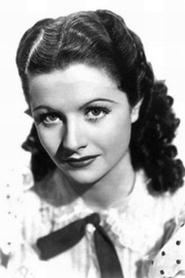
Margaret Lockwood
Margaret Lockwood, CBE (15 September 1916 – 15 July 1990) was an English actress, notable for her performance in the 1945 Gainsborough movie, The Wicked Lady.
Margaret Mary Lockwood Day was born in Karachi, British India (now Karachi, Pakistan), to an English administrator of a railway company and his Scottish wife. Lockwood's family returned to the United Kingdom when she was a child, along with her brother. She attended Sydenham High School for girls, and a ladies school in Kensington, London.
She began studying for the stage at an early age at the Italia Conti, and made her debut in 1928, at the age of 12, at the Holborn Empire, where she played a fairy in A Midsummer Night's Dream. In December of the following year, she appeared at the Scala Theatre in the pantomime The Babes in the Wood. In 1932, she appeared at the Theatre Royal, Drury Lane in Cavalcade.
Lockwood then trained at the Royal Academy of Dramatic Art in London, where she was seen by a talent scout and signed to a contract. In June 1934, she played Myrtle in House on Fire at the Queen's Theatre, and on 22 August 1934 appeared as Margaret Hamilton in Gertrude Jenning's play Family Affairs when it premiered at the Ambassadors Theatre; Helene Ferber in Repayment at the Arts Theatre in January 1936; Trixie Drew in Henry Bernard's play Miss Smith at the Duke of York's Theatre in July 1936; and back at the Queen's in July 1937 as Ann Harlow in Ann's Lapse.
Lockwood entered films in 1934, and in 1935 she appeared in the film version of Lorna Doone. In 1938 she starred in her most successful film, Alfred Hitchcock's The Lady Vanishes, in which she first appeared with Michael Redgrave. In 1940, she played the role of Jenny Sunley, the self-centered, frivolous wife of Michael Redgrave's character in The Stars Look Down. In the early 1940s, Lockwood changed her on-screen image to play villainesses in both contemporary and period films, becoming the most successful actress in British films during that period. Her greatest success was in the title role in The Wicked Lady (1945), a film which was controversial in its day and brought her considerable publicity. In 1946 Lockwood gained the Daily Mail National Film Awards First Prize for most popular British film actress.
She made a return to the stage in a record-breaking national tour of Noel Coward's Private Lives in 1949, and also played Eliza Doolittle in Pygmalion at the Edinburgh Festival of 1951, and the title role in Peter Pan in 1949, 1950, and 1957 (the latter with her daughter as Wendy). Her subsequent long-running West End hits include an all-star production of Wilde's An Ideal Husband (1965/66, in which she played the villainous Mrs Cheveley), Somerset Maugham's Lady Frederick (1970), Relative Values (Noel Coward revival, 1973), and the thrillers Spider's Web (1955, written for her by Agatha Christie), Signpost to Murder (1962), and Double Edge (1975).
In 1969, she starred as barrister Julia Stanford in the TV play, Justice is a Woman. This inspired the Yorkshire Television series, Justice, which ran for three seasons (39 episodes) from 1971 to 1974, and featured her real-life partner, John Stone, as fictional boyfriend, Dr Ian Moody. Lockwood's role as the feisty Harriet Peterson won her Best Actress Awards from the TV Times (1971) and The Sun (1973). Her last professional appearance was as Queen Alexandra in Royce Ryton's stage play, Motherdear (Ambassadors Theatre, 1980). She was created a CBE in the New Year Honours of 1981.
Margaret Lockwood had married and been divorced from Rupert Leon. She lived her final years in seclusion and died in the Cromwell Hospital, Kensington, London from cirrhosis of the liver, aged 73. She was cremated at Putney Vale Crematorium. She was survived by her daughter, actress Julia Clark (née Margaret Julia Leon, born 1941).
| Known For | Acting |
|---|---|
| Most Rating | 2.598 |
| Birthday | 1916-09-15 |
| Place of Birth | Karachi, British India [now Pakistan] |
| Also Known As | Маргарет Локвуд, Margaret Mary Day Lockwood, |

1938

The Lady Vanishes
7.442/910
On a train headed for England a group of travelers is delayed by an avalanche. Holed up in a hotel in a fictional European country, young Iris befrien...
Watch Now
The Lady Vanishes
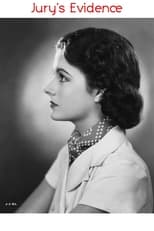
1936

Jury's Evidence
0/0
'Foreman of Old Bailey jury refuses to accept circumstantial evidence and helps solve murder case.' (British Film Catalogue)
Watch Now
Jury's Evidence
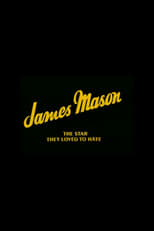
1984

James Mason: The Star They Loved to Hate
0/0
Retrospective of the life and movie work of British actor James Mason. The documentary presents interview footage interspersed with some movie excerpt...
Watch Now
James Mason: The Star They Loved to Hate

1955

Spider's Web
6/1
Watch Now
Spider's Web

1955

Cast a Dark Shadow
6.3/50
Edward "Teddy" Bare is a ruthless schemer who thinks he's hit the big time when he kills his older wife, believing he will inherit a fortune. When thi...
Watch Now
Cast a Dark Shadow

1945

The Wicked Lady
6/25
A married woman finds new thrills as a masked robber on the highways.
Watch Now
The Wicked Lady
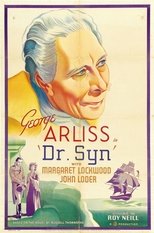
1937

Doctor Syn
6.6/5
A highly respected clergyman is actually a former pirate who exacts vigilante justice in this British production.
Watch Now
Doctor Syn
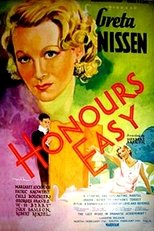
1935

Honours Easy
0/0
Unhinged art dealer William Barton seeks revenge on a man who ruined his career years ago. He does so by attempting to frame the man's son for the the...
Watch Now
Honours Easy

1940

Night Train to Munich
7.2/79
Czechoslovakia, March 1939, on the eve of World War II. As the German invaders occupy Prague, inventor Axel Bomasch manages to flee and reach England;...
Watch Now
Night Train to Munich

1945

A Place of One's Own
5.4/17
An elderly couple move into an old, supposedly haunted abandoned house. A young girl comes to live with the pair as a companion for the wife. However,...
Watch Now
A Place of One's Own

1943

The Man in Grey
5.9/38
After marrying a dour and disinterested lord for status, a young woman falls in love with a stage actor while her best friend from boarding school ent...
Watch Now
The Man in Grey
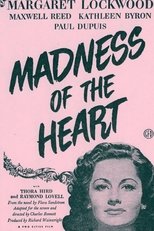
1949

Madness of the Heart
5.9/8
A blind Englishwoman weds a French nobleman and moves into his family's chateau, but she quickly realizes someone there wants her out of the way.
Watch Now
Madness of the Heart
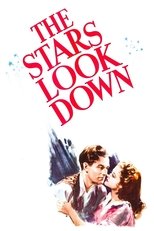
1940

The Stars Look Down
6.4/23
Davey Fenwick leaves his mining village on a university scholarship intent on returning to better support the miners against the owners. But he falls...
Watch Now
The Stars Look Down

1938

Bank Holiday
5.8/13
A 1930s British summer Bank Holiday starts at midday on Saturday with a rush for the trains to the seaside. Doreen and Milly are off to a beauty conte...
Watch Now
Bank Holiday
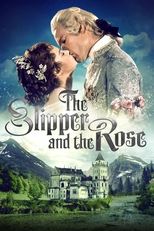
1976

The Slipper and the Rose
6.9/45
Prince Edward wants to marry for love, but the King and court of the kingdom of Euphrania are anxious for the prince to wed no matter what. When the p...
Watch Now
The Slipper and the Rose

1939

Susannah of the Mounties
6.3/15
This classic family drama stars Shirley Temple as young orphan Susannah Sheldon, the sole survivor of a brutal Indian attack who's befriended by Canad...
Watch Now
Susannah of the Mounties

1946

Bedelia
5.2/6
Bedelia Carrington is living happily, it appears, in Monte Carlo with her husband Charlie Carrington. But a cultivated young artist, Ben Chaney, begin...
Watch Now
Bedelia
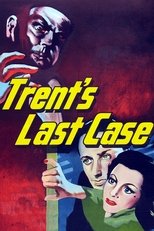
1952

Trent's Last Case
5.4/7
When a wealthy business man is found dead reporter Philip Trent is sent to investigate. Against the police conclusions, he suspects the assumed suicid...
Watch Now
Trent's Last Case
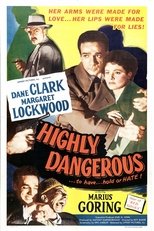
1950

Highly Dangerous
6/12
A US newsman and a British entomologist spy on germ-warfare research in a mythical country.
Watch Now
Highly Dangerous
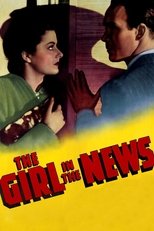
1940

Girl in the News
6.5/5
An elderly lady manages to sneak some pills away from her nurse and dies of an overdose. The nurse is tried for murder and acquitted. Some time later...
Watch Now
Girl in the News
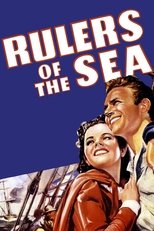
1939

Rulers of the Sea
6.5/2
The struggle of a man to build a steam ship to take him across the Atlantic in spite of all setbacks, and his win against a crack sailing boat in the...
Watch Now
Rulers of the Sea

1954

Trouble in the Glen
5.7/3
Major Jim "Lance" Lansing, an American ex-pilot of the U.S. Air Corps, returns to Scotland after the war and finds much trouble in the glen where he s...
Watch Now
Trouble in the Glen
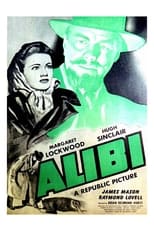
1942

Alibi
6/1
In 1930s France a bar hostess helps a man prove himself innocent of murder.
Watch Now
Alibi
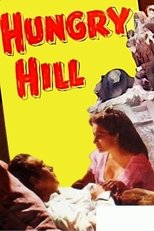
1947

Hungry Hill
5.4/5
Life becomes a tragedy for the wife of an Irish heir to a 19th-century family feud and fortune.
Watch Now
Hungry Hill
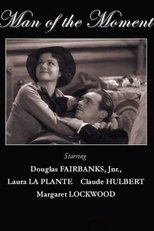
1935

Man of the Moment
5/1
Love blossoms after a young man rescues a pretty girl who attempted to drown herself.
Watch Now
Man of the Moment

1938

Owd Bob
5.4/7
Adam McAdam is an old, dour sheepherder whose life is devoted to his faithful dog, the whiskey bottle and his daughter, Jeannie. And a conflict that a...
Watch Now
Owd Bob

1935

Midshipman Easy
6.1/4
Set during the Peninsular Campaign of the Napoleonic War, Mr Midshipman Easy has just joined the Royal Navy. He is very keen to do well but luckily he...
Watch Now
Midshipman Easy

1941

Quiet Wedding
4.2/5
A young couple become engaged, but enjoy a number of comedic aventures before their wedding day.
Watch Now
Quiet Wedding
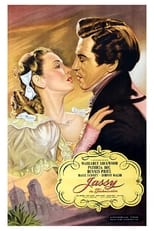
1947

Jassy
5.4/10
In 19th century England, Jassy is a young Gypsy girl blessed with the gift of second sight. Pursued by superstitious villagers, she is rescued by the...
Watch Now
Jassy
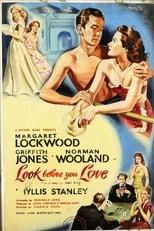
1948

Look Before You Love
0/0
Romance in Rio for a girl of the embassy staff.
Watch Now
Look Before You Love
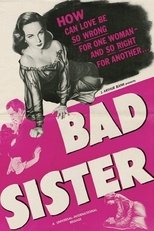
1947

The White Unicorn
7.5/1
In a home for delinquent girls, the worst offender exchanges reminiscences with the warden.
Watch Now
The White Unicorn
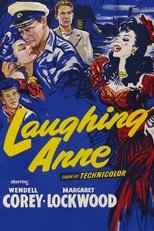
1953

Laughing Anne
4.3/3
Story of love affair of captain who runs ship in Java Seas and a French saloon singer. From a story "Because of the dollars" by Joseph Conrad.
Watch Now
Laughing Anne
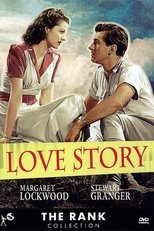
1944

Love Story
6.4/6
After discovering that she has only a short time left to live, concert pianist Lissa travels to Cornwall for the final fling of her life. While there,...
Watch Now
Love Story
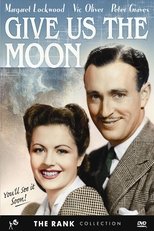
1944

Give Us the Moon
6.2/3
Set just after the end of WWII (but filmed in the middle of it) in a time of general euphoria at having won the war, with full employment and general...
Watch Now
Give Us the Moon
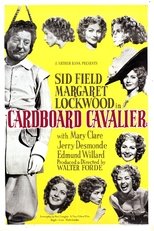
1949

Cardboard Cavalier
5.7/3
Cardboard Cavalier is a 1949 British comedy film directed by Walter Forde and starring Sid Field, Margaret Lockwood and Jerry Desmonde.The film depict...
Watch Now
Cardboard Cavalier

1936

The Beloved Vagabond
5.4/5
Flying from one charming lady---eluding another---and almost losing both!
Watch Now
The Beloved Vagabond
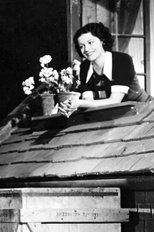
1937

The Street Singer
0/0
Following an argument with his co-star during the rehearsals for a new stage show, famous singer Richard King walks out of the theatre, still wearing...
Watch Now
The Street Singer
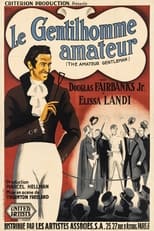
1936

The Amateur Gentleman
4/1
A former boxing champion, now an innkeeper, is accused of stealing a watch from a party of guests at his inn, who happen to be members of English roya...
Watch Now
The Amateur Gentleman
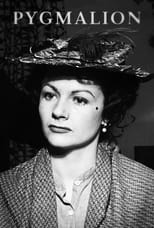
1948

Pygmalion
0/0
Can Professor Higgins transform flower-girl Eliza Dolittle into a great lady?
Watch Now
Pygmalion
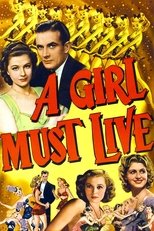
1939

A Girl Must Live
4.3/3
A run-away school-girl falls among chorus girls planning to marry into the nobility.
Watch Now
A Girl Must Live

1969

Justice Is a Woman
0/0
Julia Stafford is asked to defend a posh youth, an outsider in a conservative Scottish town, who is accused of murdering a girl.
Watch Now
Justice Is a Woman
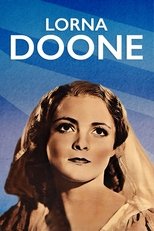
1934

Lorna Doone
5.8/2
High drama, set in the English moorland of the 1600s. John Ridd wants revenge on the criminal Doone family, but falls in love with the daughter of the...
Watch Now
Lorna Doone

1945

I'll Be Your Sweetheart
5/1
In turn-of-the-century London a young music publisher fights both competitors and piracy in a time where author's royalties were still unprotected.
Watch Now
I'll Be Your Sweetheart

1943

Dear Octopus
0/0
Three generations of a family gather together to celebrate a golden wedding anniversary, while the family secretary has the unenviable task of smoothi...
Watch Now
Dear Octopus

1935

Someday
0/0
“Curley Blake is a lift operator in a block of flats. He is in love with Emily, the cleaning girl. When Emily returns from a stay in hospital, Curley...
Watch Now
Someday

1935

The Case of Gabriel Perry
0/0
An unstable Victorian doctor murders a woman.
Watch Now
